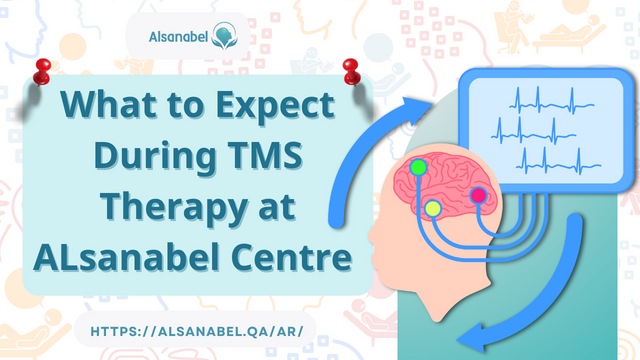Avoidant Personality Disorder
No one enjoys criticism, rejection, or embarrassment, but sometimes people spend their entire life avoiding them. A socially challenged person with a hypersensitivity to rejection and constant feelings of inadequacy may have a mental illness known as avoidant personality disorder (AVPD).
People with avoidant personality disorder experience social awkwardness. They spend a lot of time focusing on their shortcomings and are very hesitant to form relationships where rejection could occur. This often results in feelings of loneliness and becoming disengaged from relationships at work and elsewhere. People with AVPD might also refuse a promotion, make excuses to miss meetings or be too fearful to engage in events where they might make friends.
Table of Contents
ToggleWhat Causes Avoidant Personality Disorder?
Researchers don’t completely understand what causes avoidance personality disorder, but they believe it is a combination of genetics and environmental factors.
Early traumatic experiences and childhood neglect may be linked to the development of AVPD. Research suggests that children who see their caregivers as lacking in affection and encouragement and/or experience rejection from them may be at increased risk. So are children who experience abuse, neglect, and an overall lower level of care. In response to these experiences, children may avoid socializing with others as a coping strategy.
Researchers believe that an additional factor may be experiencing a change in appearance due to a physical illness.
Roughly 2.5% of the population may qualify for a diagnosis of avoidant personality disorder but many experts believe it is a largely undiagnosed and under-treated condition. It is a chronic disorder that affects both men and women equally. The disorder can develop in childhood, and symptoms have been detected in children as young as 2 years old. However, like other personality disorders, avoidant personality disorder is typically only diagnosed in adults.
Avoidant Personality Disorder Symptoms
AVPD symptoms are characterized by three major components:
- Social inhibition
- Feelings of inadequacy
- Sensitivity to criticism or rejection
To receive a diagnosis, a person must have experienced these components by the time they reach early adulthood. They also must experience at least four of the following AVPD symptoms:
- Avoidance of activities at work that involve interpersonal contact due to fear of criticism or rejection
- Unwillingness to interact with others unless certain they will receive a positive response
- Hesitancy in intimate relationships due to fear of shame
- Preoccupation with criticism in social situations
- Feeling inadequate and being inhibited in new social situations
- Perception of self as inept, unappealing, and inferior
- Reluctance to take risks or engage in activities that might result in embarrassment
A diagnosis will require a psychological evaluation by a mental health professional. This evaluation will also rule out other potential diagnoses or determine whether a person has more than one diagnosis.
What is a Cluster C Personality Disorder?
Different personality disorder diagnoses are organized by group, or “cluster.” Cluster C personality disorders are conditions in which characteristics involve being particularly anxious or fearful. Avoidance personality disorder is a Cluster C personality disorder, as are dependent personality disorder and obsessive-compulsive personality disorder.
Read more : How to Cope with Climate Anxiety
Is Avoidant Personality Disorder the Same as Social Anxiety?
Researchers and clinicians used to believe that avoidant personality disorder only occurred in conjunction with social anxiety disorder. However, more recent research has shown that there is a significant percentage of people with AVPD who do not meet the criteria for social anxiety disorder.
Sometimes it may be difficult to distinguish whether a person has social anxiety disorder or AVPD, or both conditions. Typically, a person with AVPD will experience anxiety and avoidance in all arenas of life, whereas a person with social anxiety may only have fears specific to certain situations, such as public speaking or performing.
In addition to social anxiety disorder, persons with avoidant personality disorder may have co-occurring conditions including depression, obsessive-compulsive disorder, or other anxiety disorders or personality disorders. People with AVPD are also at increased risk of substance abuse or suicidal behavior.
Sometimes avoidant personality disorder is also confused with schizoid personality disorder, as both conditions involve social isolation. However, persons with schizoid personality disorder have a general disinterest in interacting with others, whereas people with avoidant personality disorder want relationships but tend to avoid them due to fear of rejection or criticism.
Treatment for Avoidant Personality Disorder
People with avoidant personality disorder may seek treatment because they want to build stronger relationships and reduce the amount of distress they experience in public or at work. Treating any personality disorder can be difficult, as many of the symptoms have been experienced by an individual for many years.
Psychotherapy, or talk therapy, is the primary avoidant personality disorder treatment. Psychotherapy may include cognitive-behavioral therapy, which focuses on reducing negative thought patterns and building social skills. Sometimes group therapy is used to help people with similar challenges and create a safe space to build solid relationships. Family therapy can also prove useful so that family members understand the condition and can provide a supportive environment that promotes growth and healthy risk-taking.
There is little to no research demonstrating the effectiveness of medication in treating AVPD. Sometimes medications may be used to treat symptoms of avoidant personality disorder or the symptoms of co-occurring disorders. Medications typically include antidepressants (i.e. selective serotonin reuptake inhibitors) and anti-anxiety medications.









